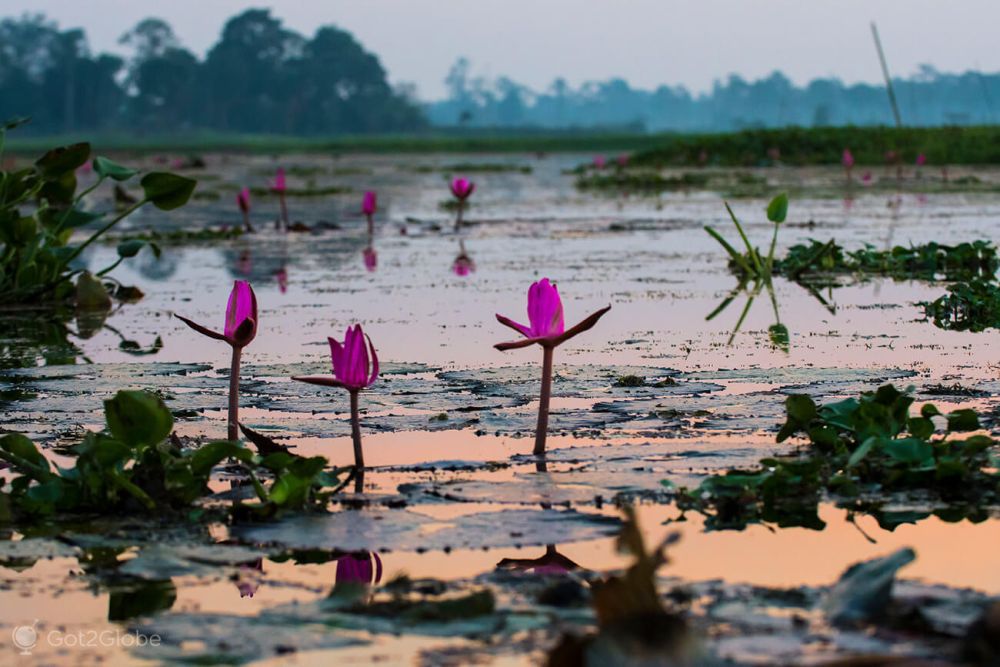

Maguri Motapung Beel is a large wetland located near the Dibru-Saikhowa National Park in Tinsukia District of Assam, India. It is an important site for biodiversity and a haven for birdwatchers and nature enthusiasts. The beel (a term for wetland or lake in Assamese) is part of the larger Dibru-Saikhowa Biosphere Reserve and has been a destination for local and international tourists interested in the natural world and traditional Assamese rural life.
While the history of human habitation in the area stretches back centuries, tourism in and around Maguri Motapung Beel is a relatively recent phenomenon. It wasn't until the late 20th and early 21st centuries that eco-tourism started to be promoted as a sustainable way to bring economic benefits to the region while conserving its rich biodiversity.
The establishment of Dibru-Saikhowa National Park in 1999 and its designation as a biosphere reserve played a significant role in attracting tourists to the nearby Maguri Motapung Beel. The increasing interest in birdwatching and the growing list of bird species identified in this area have been crucial in boosting its profile as a tourist destination.
Tourists flock to Maguri Motapung Beel mainly for birdwatching opportunities. The beel is home to over 300 species of birds and has been rated as an "Important Bird Area" by Birdlife International. The wetland provides a unique glimpse into the lives of both residential and migratory birds, making it particularly popular during the migratory season when rare species can be sighted.
Besides birdwatching, tourists also visit to enjoy traditional boat rides, witness the diverse aquatic life, and experience the culture of local communities. Eco-tourism initiatives have also promoted homestays, guided tours, and community-run conservation projects, allowing visitors to immerse themselves in the local culture while contributing to its preservation.
In recent years, there has been a push to make tourism at Maguri Motapung Beel more sustainable. The focus is on creating low-impact, high-value experiences for tourists. Efforts include the promotion of responsible tourism practices and the enhancement of community-run tourism initiatives.
With the global travel industry's increased emphasis on off-the-beaten-path destinations, Maguri Motapung Beel has seen a rise in visitors seeking authentic, nature-based experiences. Local guides and conservationists now offer specialized tours for photography, birdwatching, and cultural exchange, aligning with the latest trends in experiential travel.
The recent challenges faced by the travel industry, including the COVID-19 pandemic, have led to a rise in domestic tourism. As international travel restrictions were in place, Indian travelers began exploring more destinations within their own country, including remote places like Maguri Motapung Beel. This has presented both opportunities and challenges for local tourism, with a need to balance increased footfall with conservation efforts.
Moreover, digital technology and online platforms are becoming increasingly important in promoting Maguri Motapung Beel to potential visitors. From virtual tours to online booking systems for local homestays and guides, technology is shaping the future of tourism in this beautiful corner of Assam.
In conclusion, the tourism history at Maguri Motapung Beel has come a long way, now firmly positioned on the map for eco-tourists and nature lovers. Efforts continue to ensure that the beel's pristine environment and rich cultural heritage remain intact as its popularity as a destination grows.